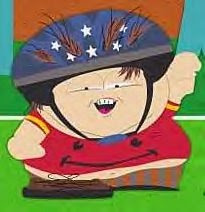
The Spartans were the most fierce, well trained warriors of the age. With their brutal training regiment, and their military tactics, not many were brave or worthy enough to take on this impenetrable force.
The training of the Spartans started at the age of 7, when the boys of the town would be taken to what we call now a day "boot camps" and be given scarce food and clothing, and encouraged to steal what they need, but not to get caught. If caught they were subject to punishment, not for steeling but for being caught. The boys were encouraged to fight each other and assert their dominance. At the age of twelve the boys were now considered youths, they were taken to a new camp were training intensified ten fold. the youths were made to go barefoot and were made to do extra tasks. At the age of 18 the young soldiers were considered adults where they would then go and help train the new batch of children. Once 20 they were eligible to become actual spartan soldiers, if selected you joined a group of about 15 others, and if not u went back to your home and worked. A soldier once selected had military duty until about the age of 60.
From a tactical point, the Spartans were not much different from other Greek states. As many Greeks did, they used the pholanx formation as they were an infantry based army. This formation consisted of a straight line of soldiers about 8 to 12 deep. Although they used a common military strategy their brutal discipline and training made them more prepared and more deadly than any other. One of the things that made them so deadly was not just their offensive ability but their superior defense, when needing they would form a circle of Shields and spears, forming an impenetrable dome of bronze and steel.
With their strict, brutal training and superior fighting skill. It is evident that the greatest army of the time was none other than the Spartans. Not only do we continue to read and learn about them today, but for centuries people have looked to them for their tactics and as symbols of strength.

No comments:
Post a Comment